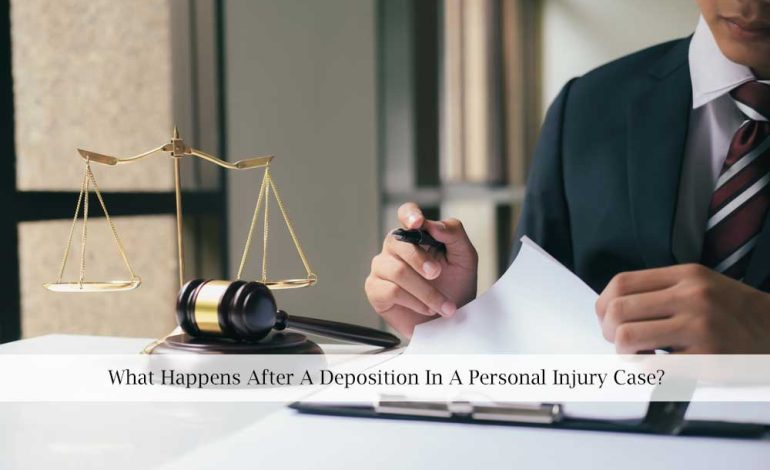What You Need To Know When You Get Social Security Disability Benefits
The chances of a disabling medical condition preventing you from working are greater than you may imagine. An average 20-year-old has a 25% chance of being disabled before reaching retirement age according to data from the Social Security Administration.
State-funded disability programs may offer limited financial relief in the form of benefits for someone with a short-term or partial disability. For people with long-term disabilities that keep them from working, Social Security disability benefits may be available.
Qualifying for disability benefits through programs administered by the SSA is not, by any means, a sure thing. In fact, the SSA reports that an average of 65% of claims for benefits are denied, which means the vast majority of applicants must file appeals or reapply.
Working with an experienced SSD lawyer from The Clauson Law Firm, PLLC, ensures that your application or appeal of a denied claim conforms to SSA regulations and procedures to increase the odds of achieving a successful outcome. To familiarize you with the programs available through the SSA and help you to know what to expect when you get Social Security disability benefits, the following information may prove to be useful.
Two programs providing Social Security disability benefits
The SSA administers the Social Security Disability Insurance and Supplemental Security Income programs that pay monthly benefits to people with disabilities that prevent them from working. They are, however, quite different as far as the requirements to qualify for benefits and retain them after you are approved.
Social Security Disability Insurance and work credits
To receive benefits through SSDI, you must be “insured,” which means that you earned income through employment or self-employment and paid Social Security taxes on the earnings for a sufficiently long period. SSDI benefits are funded through the Social Security taxes people pay on their earnings.
How long you need to work to be insured depends on the age when you become disabled. The SSA counts work credits to determine eligibility. Generally, younger workers need fewer quarters, which the SSA refers to as work credits, to qualify for benefits than does a worker whose disability occurs when they are older.
You earn a work credit based on the amount of earnings. Currently, you receive one work credit for each $1,470 in earnings, but the maximum number of credits you may acquire each year is four regardless of your total earnings. Although the annual work credits may be limited, your total lifetime earnings increase the amount of the monthly benefits paid to you by SSDI.
The fact that you earned enough work credits based on your age at the onset of disability does not, on its own, mean that you are eligible for benefits through the SSDI program. You also must meet a recent work test, which requires that some of the credits be earned within a certain time before applying for disability benefits.
For example, if you become disabled before reaching 24 years of age, six of the credits you need to be eligible for benefits must be earned within a year and a half of becoming disabled. Rest assured that your SSDI lawyer will go over your work record and explain what you need to qualify for benefits.
Supplemental Security Income program resource limits
The Supplemental Security Income program pays monthly benefits to blind or disabled adults and children provided they meet stringent income and financial resource limits. Elderly individuals who are 65 years of age or older and meet the income and resource limits may qualify for benefits through SSI without being disabled or blind. Unlike applicants for SSDI who need a work history to qualify for benefits, you may qualify for SSI with or without a work history as long as you meet the other requirements for eligibility.
You may not own assets or resources valued over $2,000 as an individual or $3,000 for a couple. Resources that count toward the totals include the following:
- Cash on hand.
- Money in the bank.
- Stocks and bonds.
- Motor vehicles.
- Land and structures built on it.
- Life insurance.
- Personal property.
The list of resources that count toward the value of total resources you are allowed to own includes food or shelter given to you by other people. For example, if your brother allows you to use a spare bedroom in his home without charging you rent, its value counts toward your resource limit.
It is important to note that not all resources count toward the $2,000 and $3,000 limits. The following are examples of resources that SSA does not count as part of your total:
- Food or shelter furnished by a nonprofit organization.
- A car or other motor vehicle used for transportation by you or a member of your household.
- Land and a home or other shelter located on it regardless of its value provided you use it as your primary residence.
Rules pertaining to what makes a resource countable or not countable can be tricky for someone on SSI. A home used as your principal residence becomes a countable asset when you no longer occupy it, but your reason for leaving may be a factor.
If someone leaves their home to live in an institution, it becomes a countable resource regardless of whether or not the person intends to return to it. However, if a spouse or other dependent relative of the person receiving SSI remains in the home, it retains its designation as a noncountable resource.
Leaving your principal residence because of domestic abuse, regardless of whether you intend to return to it, does not make the home a countable resource. If, however, you establish a new principal residence elsewhere, the value of the former home counts toward the resource limits.
Working while you get Social Security disability benefits
Working and earning an income when applying for SSI or SSDI may prevent you from qualifying for benefits. The reason has to do with the definition the SSA must use to determine if a person is disabled for both programs. The amount you earn could cause the SSA to determine that you are not disabled.
If your monthly earnings from working in 2021 average more than $1,310, it indicates that you are capable of engaging in substantial gainful activity, which means you no longer qualify for benefits as disabled. The earnings limit for someone who is blind is $2,190 a month.
Thanks to special rules in place to encourage people who get Social Security disability benefits to test their ability to return to work without it affecting their benefits through a trial work period. Work incentive rules let you get Social Security disability benefits through SSDI no matter how much you earn from work during a trial work month, which is any month that you earn more than $940.
You may continue working and receiving your full SSDI benefit for up to nine months. The nine months do not have to be consecutive, but the trial work period cannot last more than 60 months.
The work incentive rules are different when your disability benefits come through the SSI program. If you attempt to work despite being disabled or blind, you may do so with it affecting your monthly benefit payment as long as the amount you earn from work does not exceed SSI income limits.
State supplements to the federal SSI benefit payments affect the income limits you may be subject to depending on where you live. An SSI lawyer at The Clauson Law Firm can review the work incentive guidelines and income rules with you to determine how much income you can earn before it affects your benefits.
How long can you get Social Security disability benefits?
As long as you do not exceed the resource and income limits to qualify for SSI, your monthly benefits continue without interruption as long as you are blind, disabled, or over 65 years of age. If you get benefits through SSDI, the payments automatically convert to Social Security retirement benefits when you reach the age for full retirement based on the year in which you were born.
SSDI recipients whose payments convert to retirement benefits generally do not see any change in the amount received each month. However, applying for early retirement benefits at 62 years of age instead of waiting to reach full retirement age may cause the retirement benefit to be less than what you received while on SSDI. This is another situation where a consultation with an SSDI lawyer may help you to avoid an issue affecting your benefits.
Getting answers to your Social Security disability questions and concerns
When you need help navigating through the complex maze of federal laws, regulations, and procedures keeping you from receiving Social Security disability benefits, contact The Clauson Law Firm, PLLC. Our Social Security disability lawyers have the experience, knowledge, and skills required to handle all matters related to SSI and SSDI from initial applications through the appeal process. If you have questions or concerns, we have an SSD lawyer ready to spend time discussing them with you.


